Filter by
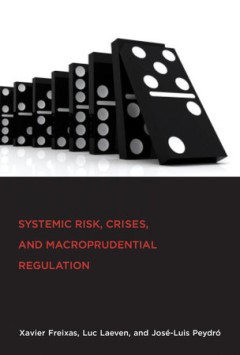
Systemic risk, crises, and macroprudential regulation
Offering a framework for understanding the reasons for the regulatory shift from a microprudential to a macroprudential approach to financial regulation, this book provides a list of challenges in the implementation of macroprudential policy and a discussion on its limitations. --OCLC-licensed vendor bibliographic record.
- Edition
- -
- ISBN/ISSN
- 9780262328609
- Collation
- 1 online resource (xiii, 472 pages) :illustrations
- Series Title
- -
- Call Number
- -
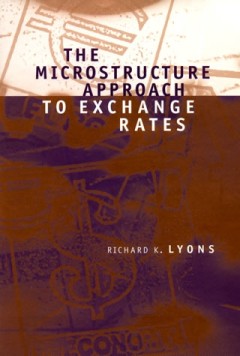
The microstructure approach to exchange rates
"Historically, the fields of exchange-rate economics and microstructure finance have progressed independently of each other. Recent interaction, however, has given rise to a microstructure approach to exchange rates. This book focuses on the economics of financial information and on how microstructure tools help to clarify the types of information most relevant to exchange rates." "The book sho…
- Edition
- -
- ISBN/ISSN
- 9780262622059
- Collation
- -
- Series Title
- -
- Call Number
- -
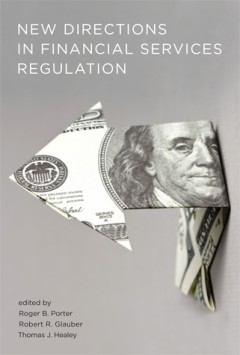
New Directions in Financial Services Regulation
This title grows out of a conference hosted by the Mossavar-Rahmani Center for Business and Government at Harvard's Kennedy School of Government in October 2009, and the book reflects the dynamic give-and-take of the event.OCLC-licensed vendor bibliographic record.
- Edition
- -
- ISBN/ISSN
- 9780262295789
- Collation
- 1 online resource (ix, 227 pages)
- Series Title
- -
- Call Number
- -
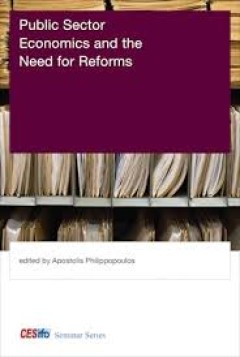
Public sector economics and the need for reforms
Theoretically and empirically informed studies on the role and efficiency of the public sector, public wage and employment policy, privatization, tax policy, and fiscal sustainability.OCLC-licensed vendor bibliographic record.
- Edition
- -
- ISBN/ISSN
- 9780262332361
- Collation
- 1 online resource.
- Series Title
- -
- Call Number
- -

nternational Currency Exposure
Issues in debates about foreign currency exposure -- the denomination of liabilities or assets in foreign currency.OCLC-licensed vendor bibliographic record.
- Edition
- -
- ISBN/ISSN
- 9780262340922
- Collation
- 1 online resource.
- Series Title
- -
- Call Number
- -
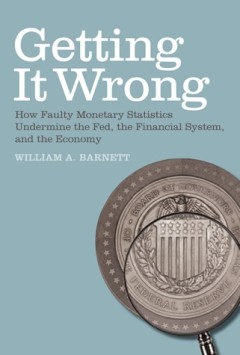
Getting it Wrong: How Faulty Monetary Statistics Undermine the Fed, the Finan…
Blame for the recent financial crisis and subsequent recession has commonly been assigned to everyone from Wall Street firms to individual homeowners. It has been widely argued that the crisis and recession were caused by "greed" and the failure of mainstream economics. In this book, leading economist William Barnett argues instead that there was too little use of the relevant economics, especi…
- Edition
- -
- ISBN/ISSN
- 9780262301343
- Collation
- 1 online resource (xxxi, 322 pages) :illustrations
- Series Title
- -
- Call Number
- -
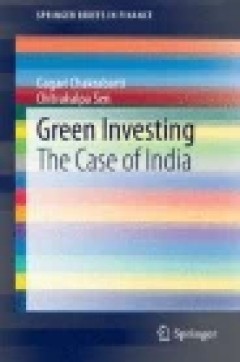
Green Investing the Case of India
This book seeks to answer the essential question of the investment-worthiness of green instruments. It is evident that investing in green and energy-efficient firms will be the most profitable choice for wise investors in the years to come. The reconciliation of the social choice for green technology and investors’ choice for gray technology will be automatically achieved once green firms bec…
- Edition
- -
- ISBN/ISSN
- 978-81-322-2025-1
- Collation
- IX, 102
- Series Title
- -
- Call Number
- 330 CHA g

The Validation of Risk Models A Handbook for Practitioners
This book is a one-stop-shop reference for risk management practitioners involved in the validation of risk models. It is a comprehensive manual about the tools, techniques and processes to be followed, focused on all the models that are relevant in the capital requirements and supervisory review of large international banks.
- Edition
- -
- ISBN/ISSN
- 978-1-137-43696-2
- Collation
- -
- Series Title
- -
- Call Number
- -
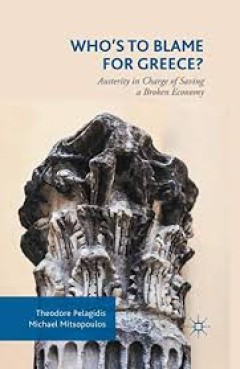
Who’s to Blame for Greece? Austerity in Charge of Saving a Broken Economy
Greece's economy symbolizes in many ways the Eurozone's economic problems and divergent interests as it amasses most of the economic disadvantages characterizing the Eurozone's economy itself. This book presents the economic and political challenges to Greece and the EU member states.
- Edition
- -
- ISBN/ISSN
- 978-1-137-54920-4
- Collation
- -
- Series Title
- -
- Call Number
- -
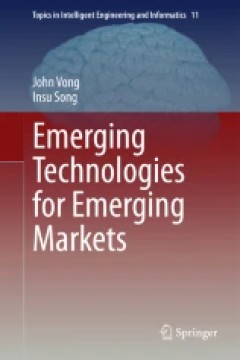
Emerging Technologies for Emerging Markets
This book introduces inclusive-cost-effective (ICE) approaches that have the potential to transform all aspects of daily lives of people at the base of the pyramid in the economic scale, who represent more than 75% of the world population. ICE means that the approaches must meet the affordability level at the base of the pyramid. This includes mobile banking and financial service technologies, …
- Edition
- -
- ISBN/ISSN
- 978-981-287-347-7
- Collation
- 49 b/w illustrations
- Series Title
- -
- Call Number
- --
 Computer Science, Information & General Works
Computer Science, Information & General Works  Philosophy & Psychology
Philosophy & Psychology  Religion
Religion  Social Sciences
Social Sciences  Language
Language  Pure Science
Pure Science  Applied Sciences
Applied Sciences  Art & Recreation
Art & Recreation  Literature
Literature  History & Geography
History & Geography